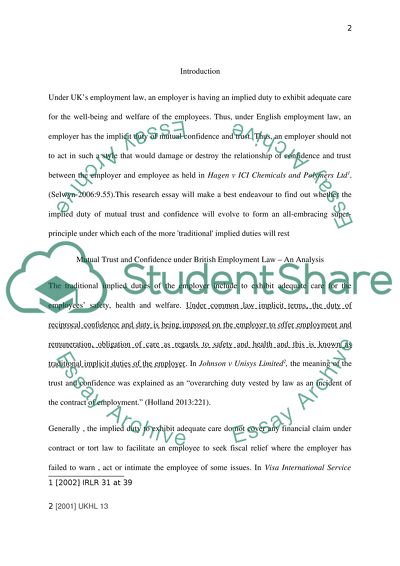Cite this document
(“Employment law/ contractual principles ( implied duty of mutual trust Essay”, n.d.)
Employment law/ contractual principles ( implied duty of mutual trust Essay. Retrieved from https://studentshare.org/law/1497192-employment-law-contractual-principles-implied-duty
Employment law/ contractual principles ( implied duty of mutual trust Essay. Retrieved from https://studentshare.org/law/1497192-employment-law-contractual-principles-implied-duty
(Employment Law/ Contractual Principles ( Implied Duty of Mutual Trust Essay)
Employment Law/ Contractual Principles ( Implied Duty of Mutual Trust Essay. https://studentshare.org/law/1497192-employment-law-contractual-principles-implied-duty.
Employment Law/ Contractual Principles ( Implied Duty of Mutual Trust Essay. https://studentshare.org/law/1497192-employment-law-contractual-principles-implied-duty.
“Employment Law/ Contractual Principles ( Implied Duty of Mutual Trust Essay”, n.d. https://studentshare.org/law/1497192-employment-law-contractual-principles-implied-duty.


